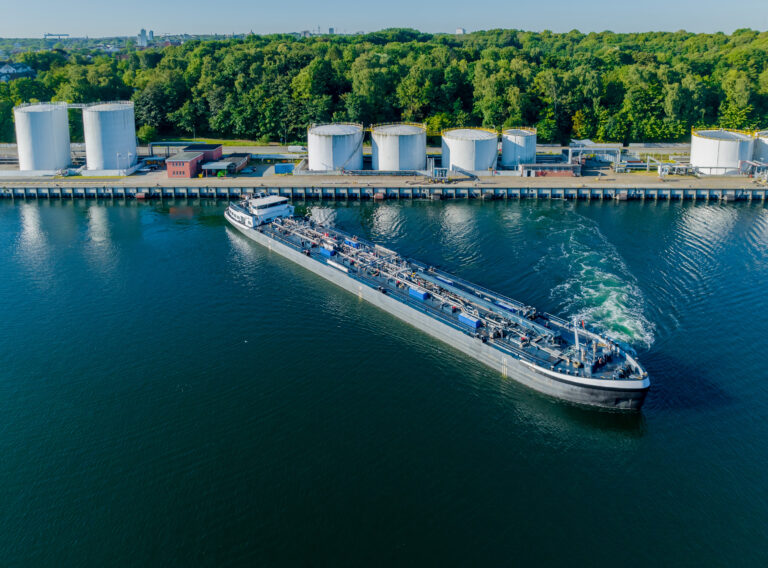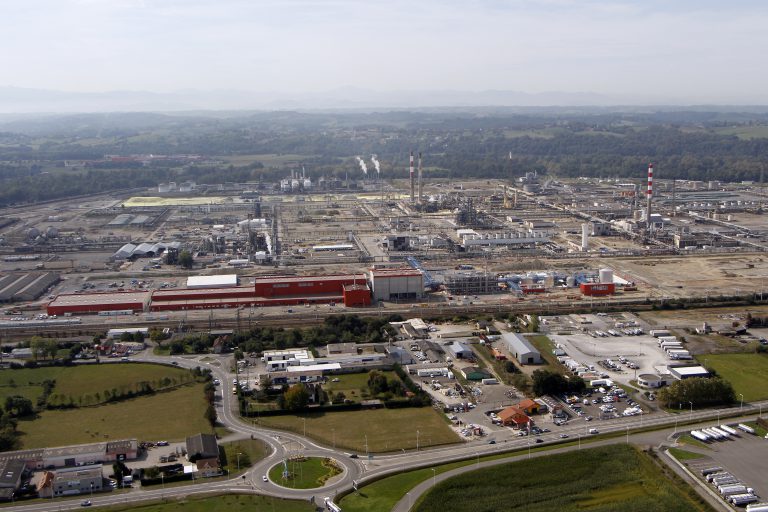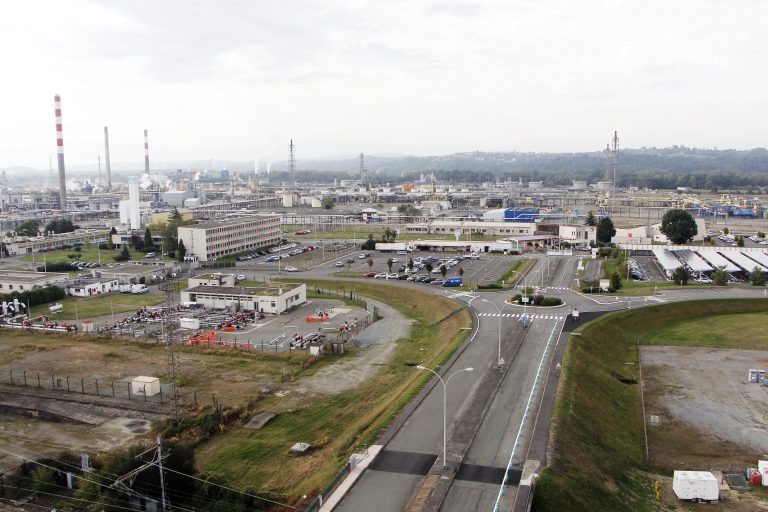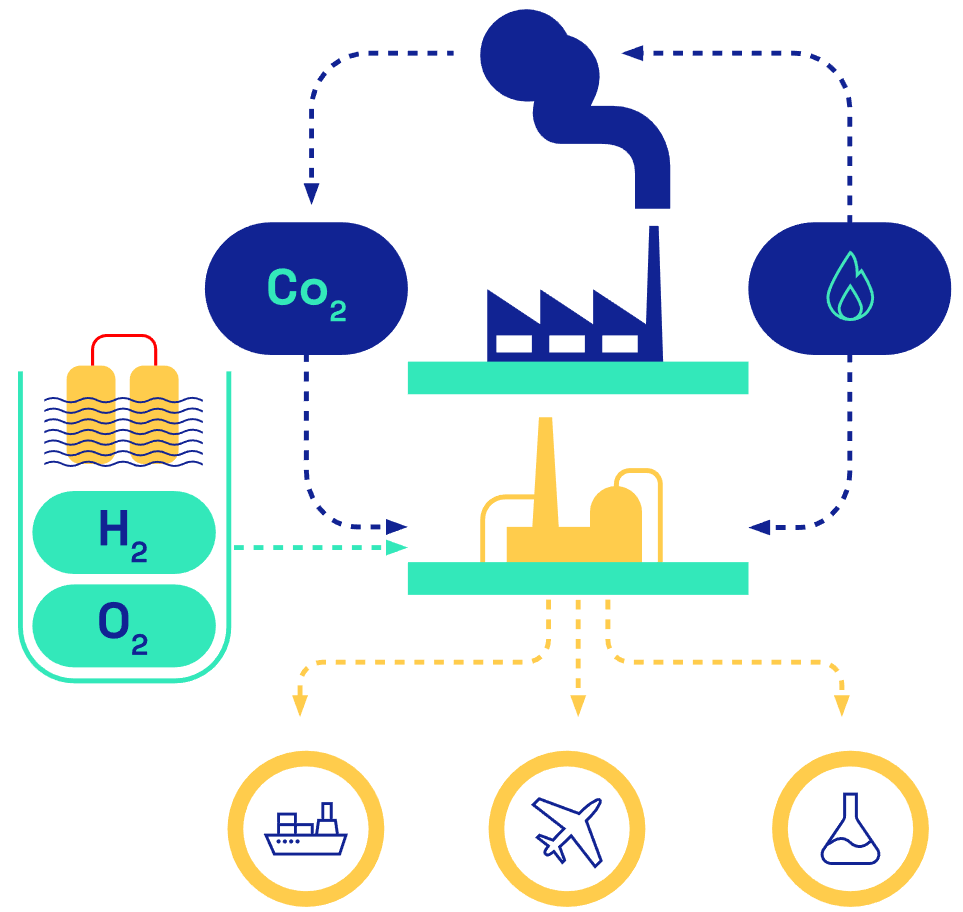

In 2020, Elyse Energy and its industrial partners initiated the eM-France programme with a view to building 4 plants to produce 500,000 tonnes of e-methanol per year from low-carbon electricity and recycled carbon.
Distributed across 4 industrial platforms in mainland France, including Lacq (64), the programme helps recover more than 700,000 tonnes per year of CO2 captured in the biogenic and unavoidable processes of French industrial companies. The programme therefore supports the carbon abatement reduction of existing consumers by replacing fossil and imported methanol while contributing to revitalising industrial areas and securing supply chains.
With low-carbon “baseload” electricity available from its nuclear power plants and a synergistic industrial ecosystem, France can rapidly become a producer of e-methanol to limit its dependence on fossil methanol imports and build an industry of excellence for tomorrow, while exporting its know-how internationally for mass production.
Elyse has partnered with the French industrial ecosystem to jointly develop the programme and make sure it is fully aligned with the expectations and requirements of stakeholders: CO2 emitters, existing or potential methanol users, network and industrial platform operators. The eM-France programme is the result of a collective effort, integrated into the local industrial fabric, as reflected in the letters of support for the project and joint action for the effective development thereof.
The eM-France programme will be distributed across 4 separate industrial sites in mainland France. The first confirmed installation is the Induslacq chemical platform, in the Lacq Basin, near Pau (64) and will be connected to a hydrogen supply site in Mourenx. The expected €1 billion investment will create 110 new direct and indirect jobs to produce 200,000 tonnes of e-methanol per year by 2027.
The second confirmed location is on the Roches-Roussillon chemical platform managed by GIE Osiris in the heart of the Rhône Valley. The planned investment is around 700 million euros and will create around 80 new direct and indirect jobs, to manufacture 150,000 tonnes of e-methanol per year by the end of 2027/beginning of 2028.



